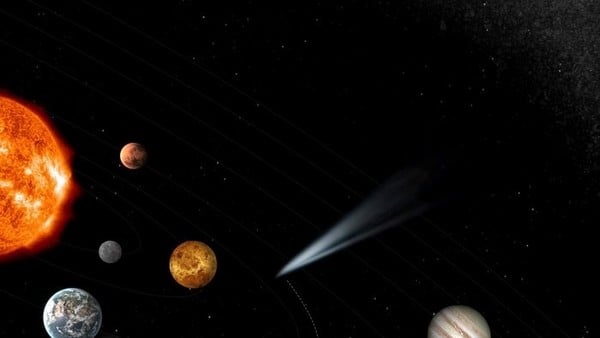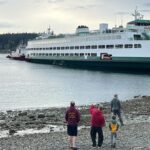Global Courant 2023-04-16 18:13:22
Earth is the only planet in the Solar System where humans can live. What would happen if we set foot without protection on the planets around us?
Earth is the only planet in the Solar System where humans can live without external support. If we set foot without protection on any of the planets around us, we would die in no time.
The Sun newspaper asked Daniel Brown, an expert from the University of Nottingham, about how we would die on a hypothetical visit to these planets.
Venus is the second closest planet to the Sun, but it is the hottest of all and extremely inhospitable.
Venus is the second closest planet to the Sun, but it is the hottest of all and extremely inhospitable (DPA).
Dr Brown explained: “It has such a thick atmosphere that on its surface it would feel like you are 1km underwater. It has temperatures of around 400°C and clouds of sulfuric acid. A good example of the greenhouse effect in the overdrive. In the end you would be crushed and burned in a second.”
Mercury is the closest planet to the Sun and is either absolutely freezing cold or boiling hot, depending on where it is in its orbital cycle.
Dr Brown explained: “During its 88 Earth days of sunlight it is 425°C hot and in the next 88 Earth days of night it freezes to around -150°C. Mercury has virtually no atmosphere for us. So in the end you would freeze or toast to crisp in less than two minutes.”
Mercury with intensified colors during NASA’s Messenger mission (EFE).
Next on the list is Earth, the third planet from the Sun. Right now it’s the only hospitable planet we’re sure of and the global life expectancy is around 70 years.
Dr Brown said: “Our home set up perfectly for us humans within its fragile ecosystem. Typically we should survive on this planet for about 80 years. Messing with the ecosystem and climate could place very different conditions.” .
On Mars we wouldn’t last long
NASA and other space agencies have their sights set on putting humans on Mars in the near future. However, those astronauts will be sent out with the best equipment and plenty of oxygen.
Mars. A human there would not last long (EFE).
In our scenario, an unprotected human on Mars wouldn’t last very long.
Dr Brown said: “Many think it’s quite hot, but in the summer months it could be almost the same conditions as in the Antarctic dry valleys. But the bigger problem is a much thinner atmosphere, comparable to the Earth’s atmosphere 35 km high. Commercial jets fly no higher than 12 km and the famous U-2 spy plane only reached 21 km. Then our bodily fluids would start to boil. Conditions are not good at all and if If I were lucky, I’d survive two minutes.”
Jupiter is the largest planet in our Solar System and the fifth closest to the Sun. It is known as a gas giant, so it wouldn’t really have a surface for a human to stand on.
Jupiter is the largest planet in our Solar System and the fifth closest to the Sun. It is known as a gas giant, so it would not really have a surface for a human to stand on (DPA).
Dr Brown said: “We now enter the realm of the gas giant, so there is no real solid surface as such. At this distance from the Sun, it is so cold that you cannot get sunlight on the clouds, but your problem lies in the atmosphere through which you will be pulled faster and faster to the center of the planet to be vaporized as you go deeper.But don’t worry about that, the immense pressure will crush you as you fall deeper and you could last a second at best.
Lastly, we have Saturn, Uranus, and Neptune, where you would be in a similar experience.
Dr Brown said: “These are all gas giants with different sizes, but that doesn’t matter, as you would be free-falling anyway to be crushed and vaporized inside these planets.”
Saturn is a gas giant and a human would be crushed and vaporized there (DPA).
Of course, these are all hypothetical estimates of what might happen to a human if they randomly appeared on different planets with their different compositions.
We won’t know for sure what would happen to a human body on different planets until we have the technology to visit safely and that would mean being protected by a lot of equipment and oxygen.
Even then, some planets seem best avoided.
GML








